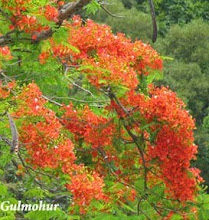 |
| ஆக்ரா கோட்டை |
 |
| ஆக்ரா கோட்டையிலிருந்து தாஜ்மகால் |
ஆக்ரா கோட்டை அகழியுடன்
கூடிய அழகுமிகு கோட்டை. பேரரசன் ஷாஜகான், மகன் ஔரங்சீப் அவர்களால் இந்த கோட்டையில் சிறை
வைக்கப்பட்டு தாஜ்மகாலை பார்த்தே இறந்ததாக சரித்திரம் கூறுகிறது. மழைநீர்
சேமிப்பிற்கு சிறப்பான அமைப்புக்களை ஏற்படுத்தி அந்த காலத்திலேயே யமுனை
ஆற்றிலிருந்து நீர் கொண்டுவரப்பட்டு மேல் நிலை தொட்டிகளில் நிரப்பி அவற்றிலிருந்து
செயற்கை நீருற்றுக்கு நீர் சென்றதாக கல்வெட்டு கூறுகிறது. இன்றும் இந்த நீர்யேற்று
முறை புதிர்தான். ஷாஜகான் ஆக்ரா கோட்டையில் இருந்தபோது யமுனை ஆற்றிலிருந்து வரும் நீரைத்தான்
அருந்துவார். ஆற்று நீர் அந்த காலகட்டங்களில் குடிப்பதற்கு ஏற்றதாயிருந்தது என்பது
குறிப்பிடத்தக்கது. மகனுடன் சண்டையிட்ட போது அந்த நீர் வரும் வழியை மகன் ஔரங்சீப் மறித்ததால் வேறு வழியின்றி ஷாஜகான் ஜூன் 8 - 1658 வருடம் சரண்டைந்ததாக
அங்குள்ள கல்வெட்டில் பார்த்தேன். உலக புகழ்மிக்க தாஜ்மகாலை கட்டிய பேரரசன்
வீழ்ந்த வரலாற்றின் பின்னால் தண்ணீர்தான் இருக்கிறது என்றால் வியப்பாகத்தான்
உள்ளது.
 |
| அழகிய தோட்டங்கள் |
 |
| மழைநீர் சேமிப்புப் பாதை |
 |
| மழைநீர் சேமிப்புப் பாதை |
 |
| யமுனை ஆற்றிலிருந்து அகழிக்கு நீர் வரும் வழி |
 |
| கோட்டையைச் சுற்றி அகழி |
Shahi
- hammam & water supply system (c. 1570-1658 A.D.)
The shahi- hammam, also called ghusl-khanah, was originally built by akbar and
was renovated by shah jehan. It is a closed complex of octagonal halls and
rooms, interconnected by corridors, with only a few jali openings on the
river-side. The instrument room above the furnaces had two large deghs (pots)
of brass and copper.clay and copper pipes, sunk mysteriously in the masonry
walls, were conducted to other rooms some of which also had miniature tanks
hidden in corners at dado-height the secret of this mechanism is not known to
us today. Construction is in brick masonry but pavements and dados were
originally finished in white marble. Walls were stuccoed and painted. Every
room is connected by a hypocaust-system. A ventilator is provided at the apex
of each cupola shaped domed ceiling. Some backyard quarters served the purpose
of imperial toilet. Its mechanism shows that some sort of air-conditioning was
worked and this was mainly used as a summer
palace for conducting
business of confidential nature, as foreign travellers have observed. It ranks
among the finest hammams of the mughals.
There
are three deep tanks on its roof. These were filled by the river-water, drawn
by rehant (water-wheel) near the khizri or water-gate. From these overhead
tanks, water was supplied to the fountains, water-falls and tanks of
nagina-masjid, machchhi bhawan, shish-mahal ano- muth amman-burj through
water-tight clay and copper pipes and open nalis. River water in mughal times
was clean pure and fully potable. King shah jehan used it for drinking.
Aurangzeb besieged the fort after the battle
of samogarh and stopped its water supply from the river forcing the king to
surrender on 8 june 1658 thereafter, aurangzeb secured the fortgates by
additional barbicans













7 comments:
ஆமாம் இந்த கோட்டைகளை சுற்றி பார்த்த போது இந்த நீர் சேமிப்பு தான் அதிசயமாக இருந்தது..
Sir,
Very useful information.
Rain water harvesting, water conservation etc., all done by our ancestors now we are enjoying. We have to leave a healthy planet for our next generation.
உங்கள் வருகைக்கு மிக்க நன்றி.
Sir
"all done by our ancestors now we are enjoying. We have to leave a healthy planet for our next generation".
Your right. But possibilities ???
திருமதி கோமதி அரசு அவர்களின் கூறியது.
http://mathysblog.blogspot.com/
திருமதி பக்கங்கள் என்ற என் வலைத்தளத்தில் உலக த்ண்ணீர் தினத்திற்காக பதிவு எழுதி இருக்கிறேன்.
அதில் உங்கள் வேண்டுகோள்படி 2010லில் நானும், மற்ற பதிவர்கள் எழுதிய பதிவுகளையும், உங்கள் பதிவுகளின் சுட்டியையும் அளித்து இருக்கிறேன்.
நேரம் இருந்தால் பாருங்கள்.
worth reading
உங்கள் வருகைக்கு மிக்க நன்றி.
Post a Comment